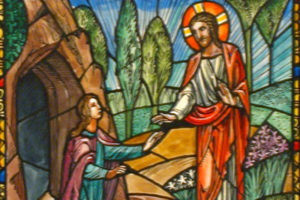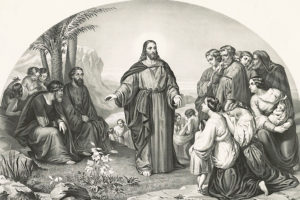CATHOLIC FAITHWATCH: “[Saint John Paul II on the Parable of the Prodigal Son and the Merciful Father -] General Audience, Sept. 8, 2019” – VaticanVa

“… God’s Forgiveness is revealed through Jesus’ Words and Deeds. In pardoning sins, Jesus shows the Face of God the Merciful Father. … The high point of this revelation can be considered the sublime parable … usually called ‘the prodigal son’ … which should be called ‘the Merciful Father’ … God’s Attitude is presented in terms that are truly overwhelming in comparison with human criteria …. Leaving the father’s house clearly expresses … sin as an act of ungrateful rebellion with … humanly painful consequences. … the father, catching sight of him while still a long way off, runs to meet him full of compassion (or better, ‘inwardly moved with pity,’ as the Greek text literally says: Lk 15: 20), embraces him lovingly and wants everyone to celebrate with him.
… legalism is surpassed by the father’s generous and gratuitous love …. Forgiveness consists not only in taking [the prodigal son] back … but also … the joy of restored communion, bringing him from death to life. … The merciful Father who embraces the prodigal son is the definitive icon of God revealed by Christ. First and foremost He is Father. It is God the Father who extends his arms in blessing and forgiveness, always waiting …. [Jesus] has been sent to manifest the Father’s mercy. This is the mercy that shines brightly especially on Golgotha, in the sacrifice offered by Christ for the forgiveness of sins ….”
Click here for: “[Saint John Paul II on the Parable of the Prodigal Son and the Merciful Father -] General Audience, Sept. 8, 2019” – VaticanVa
This Angelus also was the subject of the following Vatican Information Service press release from 1999:
GOD SHOWS HIS MERCY IN PARDONING SINS
VATICAN CITY, SEP 8, 1999 (VIS) – In this morning’s general audience held in St. Peter’s Square, the Holy Father, continuing his reflections on the meaning of conversion, spoke of the significance of the remission of sins which is offered through sacramental meditation.
If, said the Pope, forgiveness of sin in the Old Testament “does not attenuate man’s responsibility and the need for his commitment to conversion,” in the New Testament “God’s forgiveness is manifested through the words and deeds of Jesus. In forgiving sin, Jesus reveals to us the merciful face of the Father.”
John Paul II confirmed that the “pinnacle of this revelation may be considered as being the parable which is known as the ‘prodigal son’ but which should be called the ‘merciful father.'”
“The decision of the younger son to liberate himself (from his father) … is a blatant rejection of family communion. The distancing from the paternal home well expresses the meaning of sin and its character of ungrateful rebellion.” Human logic, expressed in the elder brother’s protest, would suggest “adequate punishment.” Nonetheless, the Pope continued, the father goes out to meet the prodigal son and shows him his love. “Pure legality is overcome by generous and unconditional parental love, which goes beyond human justice and summons both brothers to sit once more at the father’s table.”
“The merciful father of the parable both contains within himself and transcends all the attributes of paternity and maternity. … The mystery of the ‘return home’ admirably expresses the meeting between the Father and humanity, between mercy and misery, in a circle of love that does not only concern the lost son but extends to all.”
AG;FORGIVENESS SINS;…;…;VIS;19990908;Word: 280;
Published by VIS – Holy See Press Office – Wednesday, September 08, 1999
[the press release included the following notice:
Copyright © VIS – Vatican Information Service
In accordance with international regulations on Intellectual Property and Author’s Rights, VIS authorises reproduction of news items issued by the Vatican Information Service, partially or in their entirety, on condition that the source (VIS – Vatican Information Service) is quoted.]
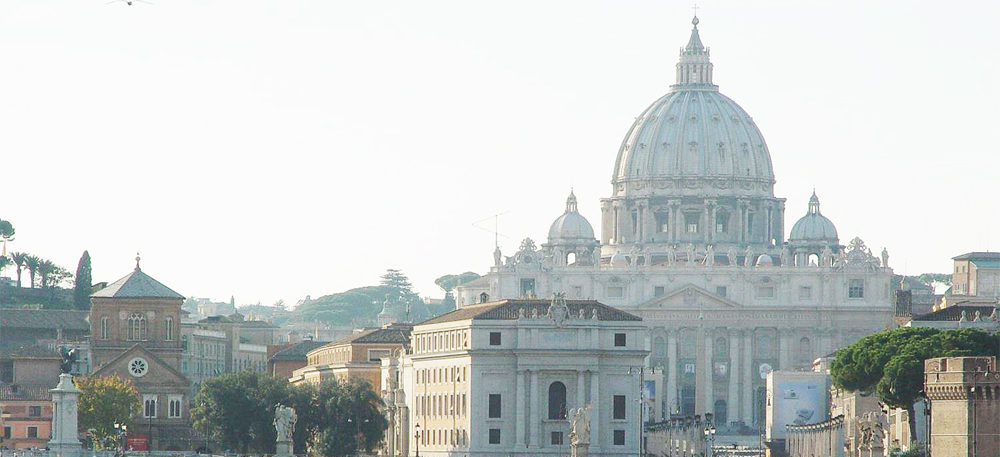
[featured images are file photos]


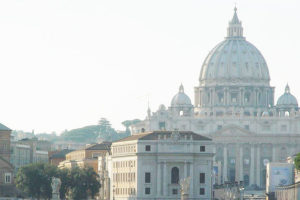
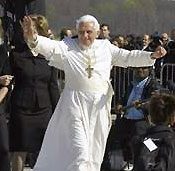 “… a particularly severe warning from Jesus … ‘The Kingdom of God will be taken away from you and given to a nation producing the fruits of it’ … These are words that call to mind the great responsibility of those in every epoch who are called to work in the Lord’s vineyard, especially in roles of authority, and they press for a renewal of full fidelity to Christ.’ … ‘the very Stone which the builders rejected’ … He Himself, rejected and crucified, is Risen, to become the ‘corner stone’ on which the foundations of every human life and of the whole world may rest in total safety.”
“… a particularly severe warning from Jesus … ‘The Kingdom of God will be taken away from you and given to a nation producing the fruits of it’ … These are words that call to mind the great responsibility of those in every epoch who are called to work in the Lord’s vineyard, especially in roles of authority, and they press for a renewal of full fidelity to Christ.’ … ‘the very Stone which the builders rejected’ … He Himself, rejected and crucified, is Risen, to become the ‘corner stone’ on which the foundations of every human life and of the whole world may rest in total safety.”